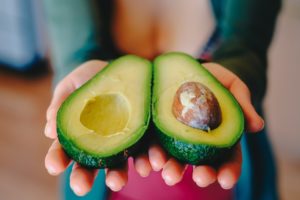Calendar
January 2026 S M T W T F S 1 2 3 4 5 6 7 8 9 10 11 12 13 14 15 16 17 18 19 20 21 22 23 24 25 26 27 28 29 30 31 Archives
- June 2018
- April 2018
- March 2018
- February 2018
- January 2018
- December 2017
- November 2017
- October 2017
- September 2017
- August 2017
- July 2017
- April 2017
- March 2017
- February 2017
- January 2017
- December 2016
- November 2016
- October 2016
- September 2016
- July 2016
- June 2016
- May 2016
- April 2016
- March 2016
- February 2016
- January 2016
- December 2015
- November 2015
- October 2015
- September 2015
- August 2015
- July 2015
- June 2015
- May 2015
- August 2013
- June 2013
- May 2013
- March 2013
- February 2013
- January 2013
- July 2012
- June 2012
- October 2011
- September 2011
- August 2011
- January 2011
Categories
Tag Archives: Folate
Folic Acid Health Benefits for Pregnant Women
 Folic Acid, a vitamin B variant, can be extremely beneficial for women, especially those who are pregnant or are planning to conceive. This water-soluble form of vitamin B9 could safeguard the fetus from being born with grave disorders like ‘spina bifida’ or anencephaly. If young and pregnant women took this vitamin on a daily basis, nearly 70% of birth defects associated with the spine and brain would never have happened.
Folic Acid, a vitamin B variant, can be extremely beneficial for women, especially those who are pregnant or are planning to conceive. This water-soluble form of vitamin B9 could safeguard the fetus from being born with grave disorders like ‘spina bifida’ or anencephaly. If young and pregnant women took this vitamin on a daily basis, nearly 70% of birth defects associated with the spine and brain would never have happened.
This vitamin B type naturally occurs in legumes, nuts, and specific vegetables. However, most of those who are on their way of becoming pregnant or already are do not consume sufficient amounts of these food items routinely. Hence, their bodies do not get the daily required dosage of Folic acid.
The best option of supplying the daily quota to the body is by taking pills and supplements.
Folic Acid: What is it?
Folate and Folic Acid are water-soluble vitamin B9 variants. They can be found in the common dietary items we tend to consume from day to day like grains, beef liver, beef kidney, eggs, meats, dairy products, seafood, nuts, fruits, green vegetables, leafy vegetables and so on. Vitamins, fortified grain products and breakfast cereals include folic acid in artificial form. Our bodies absorb and ingest the synthetic type more effectively than the natural variant.
Benefits of Folic Acid
Though researchers are still in the dark as to why and how Folic acid contributes towards averting birth defects, there is enough circumstantial evidence to prove the above assertion. As a matter of fact, the vitamin can check the incidence of such defects in the early stages of pregnancy, much before they realize that they’re carrying. These defects are usually related to the unborn baby’s vertebral column and brain and are classified as ‘Neural Tube Defects’. Encephalophele, spina bifida and anencephaly are the most common NTDs.
Folate also plays a key role in preventing the baby from other health defects at the time of birth like autism, cleft palate, cleft lip, and cerebral aneurism. A study conducted recently by University of California, Davis led to the finding that pregnant women who regularly took natural foods containing folic acid were less vulnerable to give birth to babies diagnosed with autism spectrum disorders (ASD). These women were also at lesser risk of delivering babies with NTDs, their exposure to home pesticides or insecticides (a high risk factor for autism) notwithstanding.
Furthermore, folic acid is also required for the healthy development of the fetus and placenta. This nutrient also helps in the embryo’s cell division and DNA production and its deficiency could hinder the process of development. According to Diane Ashton, MD and deputy medical director for the ‘March of Dimes’, 50% of pregnancies in the US are spontaneous.
Hence, it becomes all the more essential for women in the child bearing age category to take supplements of this vitamin daily to keep themselves (and presumably their unborn babies) out of harm’s way.
How much Folic Acid to take every day?
As per Institute of Medicine’s, CDC’s, the March of Dimes’ recommendations, that pregnant women should take 600 micrograms of the nutrient from a multivitamin or prenatal vitamin or consume one bowl of enriched breakfast cereal containing 400mcg. These institutions also suggested that women in general should take nothing less than 400mcg of the synthetic Folate every day.
Side effects of Folic acid
There are some downsides of consuming the vitamin B9 variant on a routine basis. The Journal of Epidemiology & Community Health published a report mentioning that women taking folic acid in supplement form were at high risk of succumbing to breast cancer. Many researches and studies have pinpointed a link between supplements of Folate and ectopic pregnancy, leukemia, heart problems, and asthma.
Pregnant women should decrease their consumption of the nutrient following the first trimester. From the 2nd trimester till delivery, women can source the vitamin from food items.
To know more about Folic acid and its health benefits, log in at www.decuyperechiropractorclearwater.com or dial 727-449-80-80.
Image credit: fotografyarte
Posted in Health, Healthy living, Nutrients, Pregnancy
Tagged Folate, Folic Acid, good nutrition, health, healthy living, heart problems, leukemia, pregnancies, spina bifida, vitamin B
Comments Off on Folic Acid Health Benefits for Pregnant Women
Heart Health Benefits of Avocados
 A good majority of health-conscious men and women are of the opinion that avocado, variously referred to as alligator pear, has an unusually high concentration of total fats, rendering the fruit’s consumption unsuitable for heart health. Yes, it’s true-every 100g of the fruit contains 14.66g of fat-but 67% of its total fat content comprises monounsaturated fat in the form of oleic acid, the same type that abounds in oil extracted from olives. Nutritionists, dieticians, and health experts continue to emphasize on the significance of monounsaturated fats for maintaining the health of the heart. Avocados are also endowed with minerals, vitamins, and dietary fibers that make the fruit’s consumption beneficial for cardiovascular health.
A good majority of health-conscious men and women are of the opinion that avocado, variously referred to as alligator pear, has an unusually high concentration of total fats, rendering the fruit’s consumption unsuitable for heart health. Yes, it’s true-every 100g of the fruit contains 14.66g of fat-but 67% of its total fat content comprises monounsaturated fat in the form of oleic acid, the same type that abounds in oil extracted from olives. Nutritionists, dieticians, and health experts continue to emphasize on the significance of monounsaturated fats for maintaining the health of the heart. Avocados are also endowed with minerals, vitamins, and dietary fibers that make the fruit’s consumption beneficial for cardiovascular health.
Monounsaturated Fats
Avocado, scientifically called ‘Persea Americana’ together with all its known variants and cultivars, release about 670kJ of energy per serving which is much higher than similar servings of most fruits. No wonder then that the fruit is rich in vitamins C, E, and K and numerous B vitamins. However, avocadoes have a very good concentration of total fats, mostly in the form of monounsaturated fats.
Each 100g serving of avocado contains 9.80g of monounsaturated fat and 2.13g of saturated fats. From the perspective of health, especially heart health, monounsaturated fats are most effective compared to polyunsaturated fats and saturated fats. Monounsaturated fats not only help raise HDL (good cholesterol) levels in the bloodstream but also significantly lower ‘bad cholesterol’ or LDL.
Potassium
All varieties of avocado are plentiful in minerals, particularly potassium. Two of the most popular varieties, ‘California Hass’ and the Florida ‘Choquette’ contain 507mg and 351mg of potassium respectively. The amount of salt as well as the type and quantities of dietary fat consumed together with the frequency of physical exertion programs have a considerable bearing on the blood pressure, if the AHA (American Heart Association) is to be believed. It is estimated that about — Americans are plagued with hypertension or high blood pressure.
Following a DASH (dietary approach to stop hypertension) diet, comprising food items and preparations loaded with potassium, calcium, and magnesium will go a long way in effectively bringing down blood pressure. Potassium, along with the other vital minerals, contributes towards muscle relaxation and on its own, counteracts the adverse effects of excessive sodium content in the body.
Dietary Fibers
All food items and beverages imbued with nothing less than 5g dietary fiber in every serving are classified under foods abounding in dietary fibers. In this respect, a 100g serving of Hass avocado in raw form, supplies 6.8g of dietary fiber to the body while an identical serving of the ‘Choquette’ variety delivers 5.8g. An adult female needs about 21g of dietary fibers on a daily basis which implies that a single serving of avocado will cater to approximately 34% of that requirement. Dietary fibers, along with monounsaturated fats, are instrumental in reducing abnormally high LDL levels.
Vitamin E and B-Vitamins
Avocadoes contain copious proportions of the B-vitamins, B-5, B-6 and Niacin (B-3) and Folate and eating the fruit regularly promotes energy metabolism which in turn encourages formation of new cells and DNA. Consuming food items containing an abundance of Folate and B-vitamins also brings down homocysteine levels.
For leading a disease-free and healthy life, you can talk to Dr. Decuypere by dialing 727-449-8080 or log in at www.decuyperechiropractorclearwater.com for more details.
Image credit: coyot
Posted in Health, Healthy living, Nutrients, Wellness
Tagged Avocados, Folate, Healthy food, Heart Health, vitamins
Comments Off on Heart Health Benefits of Avocados









